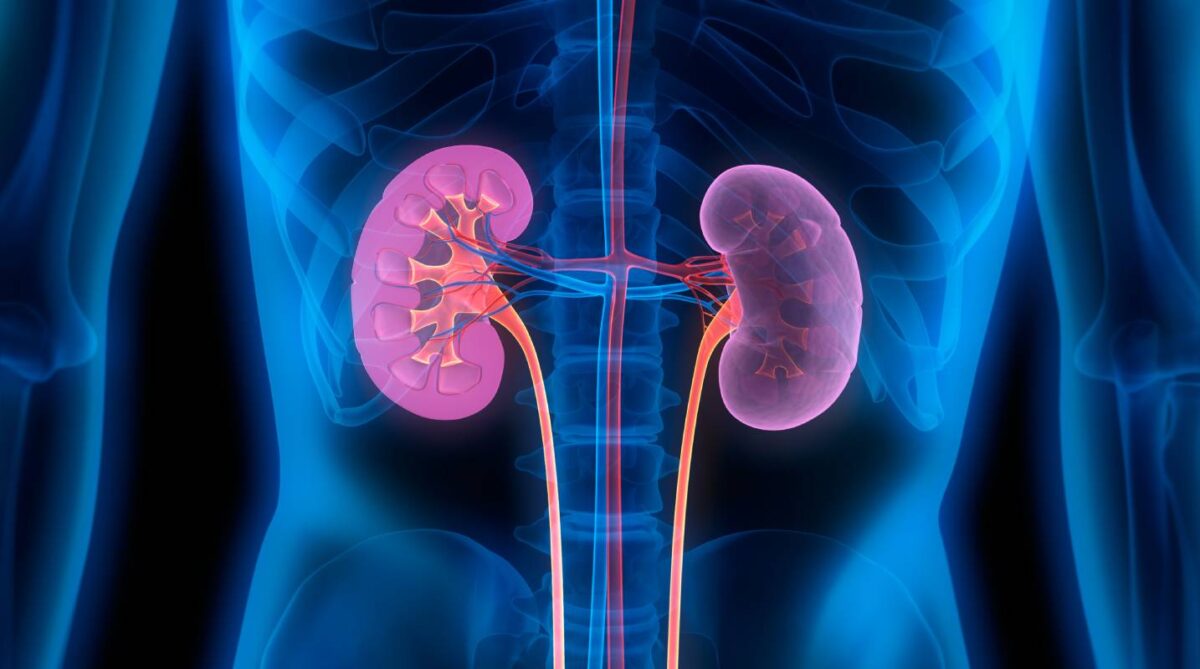Renal Protection with Dexmedetomidine

Acute kidney injury (AKI), also known as acute kidney failure or renal failure, is a condition in which the kidneys do not properly filter waste from blood. Associated with increased mortality, AKI often occurs as a complication following surgery, possibly due to inflammation caused by the procedure, periods of low cardiac output, and the use of medications that are difficult for the kidneys to process.1 AKI can lead to chronic kidney disease, a condition in which the kidneys have sustained lasting damage, often necessitating dialysis or a kidney transplant.2
Dexmedetomidine (DEX) has been shown to provide renal protection and prevent AKI in several contexts. It is an anesthetic agent that induces analgesia and anesthesia by acting as an agonist for the alpha-2 adrenergic receptor.3 DEX is a versatile and commonly-used anesthetic in the critical care setting due to its potent sedative effects and minimal impact on respiration.4 DEX also reduces the incidence of post-surgical delirium and is associated with a lower duration of mechanical ventilation.4
Additionally, dexmedetomidine has been shown to provide renal protection due to its anti-inflammatory behavior. DEX reduces inflammation through several means. The drug reduces the production of inflammatory cytokines, such as TNF-alpha and IL-6, and lowers oxidative stress – an imbalance between reactive oxygen species and antioxidants, the substances that eliminate them – by reducing the production of reactive oxygen species.5
One of the most common causes of AKI is cardiac surgery, and studies have suggested that DEX can diminish AKI in this setting. Ruegg et al. summarize several clinical studies of DEX administered to patients undergoing surgery, most of which suggest that DEX reduced the incidence of post-surgical AKI.4 However, Ruegg et al. note that caution must be used when interpreting the results of these studies, as cardiac surgery patients may have pre-existing conditions that render them more susceptible to kidney injury.
Though cardiac surgery is among the most common causes of AKI, the condition is by no means exclusive to this type of surgery: AKI affects approximately one-fifth of patients who undergo a major operation.6 However, in some instances, DEX may not effectively reduce AKI. In a 2016 study, Moon et al. analyzed whether intraoperative DEX administered during lung cancer surgery could reduce the incidence of AKI.7 More than a thousand patients undergoing resection for non-small-cell lung cancer over the course of nine years participated, and it was eventually determined that there was no significant difference in the incidence of AKI between patients receiving DEX and those who did not: approximately 8% of patients in both groups developed the condition.
The most common cause of severe AKI in the intensive care unit is sepsis. The exact mechanism of sepsis-induced AKI has not been fully resolved but likely is connected to the microvascular dysfunction caused by the increase in pro-inflammatory cytokines. One clinical trial found reductions in blood plasma levels of these cytokines and biomarkers of kidney injury in patients given DEX as compared to patients given propofol, a different anesthetic.8 While these results are encouraging, future trials and studies are needed to better characterize when and how dexmedetomidine provides renal protection and how to best maximize this effect for individual patients.
References
1. Loomba, R. S. et al. The effect of dexmedetomidine on renal function after surgery: A systematic review and meta-analysis. J. Clin. Pharm. Ther. 47, 287–297 (2022), DOI: 10.1111/jcpt.13527
2. Chronic kidney disease (CKD). https://www.kidneyfund.org/all-about-kidneys/chronic-kidney-disease-ckd (2021).
3. Dexmedetomidine. https://go.drugbank.com/drugs/DB00633.
4. Ruegg, G, et al. The Role of Dexmedetomidine for the Prevention of Acute Kidney Injury in Critical Care. Eur. Med. J. 9, 97-106 (2021), DOI: 10.33590/emjnephrol/21-00087.
5. Yao, Y. et al. Dexmedetomidine alleviates lipopolysaccharide-induced acute kidney injury by inhibiting the NLRP3 inflammasome activation via regulating the TLR4/NOX4/NF-κB pathway. J. Cell. Biochem. 120, 18509–18523 (2019), DOI: 10.1002/jcb.29173
6. Uchino, S. et al. Acute renal failure in critically ill patients: a multinational, multicenter study. JAMA 294, 813–818 (2005), DOI: 10.1001/jama.294.7.813
7. Moon, T. et al. The Use of Intraoperative Dexmedetomidine Is Not Associated With a Reduction in Acute Kidney Injury After Lung Cancer Surgery. J. Cardiothorac. Vasc. Anesth. 30, 51–55 (2016), DOI: 10.1053/j.jvca.2015.03.025
8. Liu, J. et al. Dexmedetomidine protects against acute kidney injury in patients with septic shock. Ann. Palliat. Med. 9, 224–230 (2020), DOI: 10.21037/apm.2020.02.08
